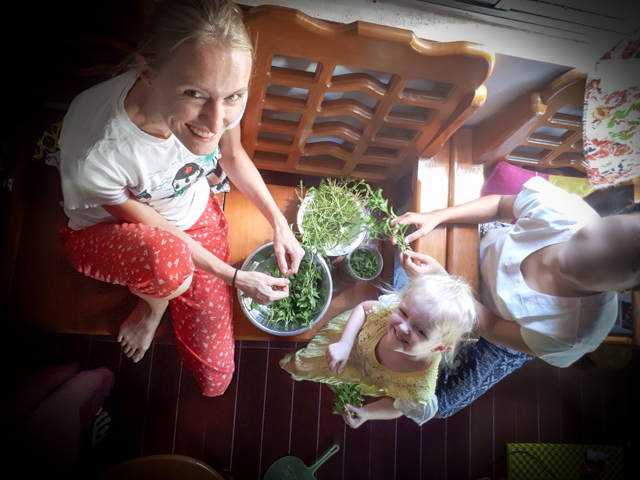
Hi Biryani! Could you tell us a little bit about your family and how you got in Myanmar?
Hello!
I moved to Yangon with my husband (who has lived in Myanmar since 2006) in 2015. Since that time, two daughters have joined us (they are now 5 and 3). My husband works on literacy projects with Myanmar Christian colleagues. We are also nearly ready to launch a small business. At the moment, all of these things are currently on hold for obvious reasons.
In March 2020 we unexpectedly got stuck outside of Myanmar due to COVID and were unable to return. We were so excited for Myanmar to reopen so we could get home to Yangon after being stranded for nearly a year, and then the coup happened.
Until the revolution succeeeds, our current projects all involve being co-conspirators in the revolution and supporting Myanmar friends in every way possible.
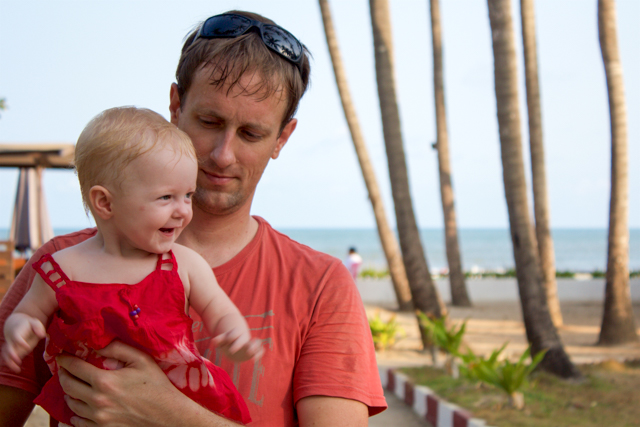
You have been the catalyst of many campaigns and initiatives. The mental health project, the adidas/Beyonce campaign and recent #sisters2sisters come to mind. There was a time in March when we were all horrified by hundreds of violent images coming from Myanmar. You suggested people on Twitter to post pictures of the young victims of when they were alive. I remember thinking how your positivity is having an impact in the movement. Where do you get your amazing energy?
I have a hard time answering the “where do you get your ideas?” question, because a lot of the campaigns I’ve worked on are the fruit of earnest conversations with Myanmar friends. It usually starts with shared angst over a problem we see. With the adidas/Beyonce campaign, a Myanmar friend and I started texting about the issues and swapping ideas; before long we were creating a campaign, and others were joining to help us. I think the cross-cultural nature of some of these projects also fuels creativity, and dialoguing in more than one language absolutely enhances the creative process. I’d like to credit my Myanmar friends with most of the ideas though—and I hate that the coup makes it so I can’t name them here to give them proper credit.
A lot of my energy actually comes from my anger. I think resisting systems of oppression alongside my friends is creative work. Oppression, at its core, is uncreative, parasitic and it relies on statis. Resistance turns all of these “norms” upside-down.
Resistance starts as an act of imagination, the belief that a better world is possible.
This belief, and the fact that I get to share it with a few million others, is what energizes me.
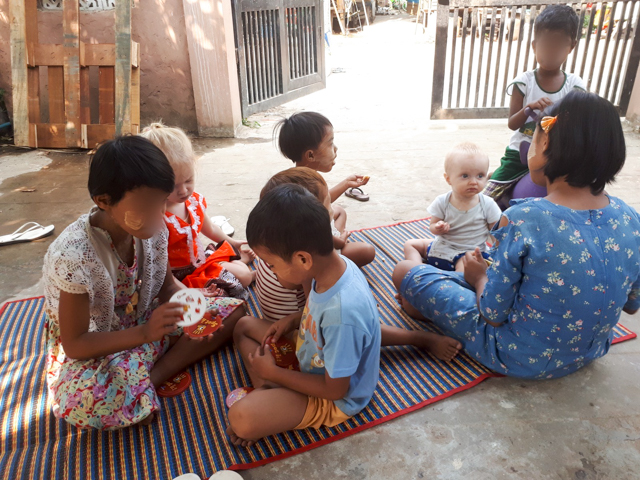
What is your daily life in Mingaladon like?
Well, here’s a snapshot of the rhythm of our lives pre-pandemic:
– bike commutes to meet colleagues in the center of town
– dropping our daughter off at her Myanmar preschool on the way to work
– work: me and my husband’s respective writing projects. Research and design for our business.
– evenings spent hanging out in the street with our neighbors, or going on long bike rides around the rice fields north of Mingaladon.
Our kids love living in Mingaladon. Our daughters ask every day about when we can return home. Our neighborhood is an extrovert’s paradise. It’ll be a happy day for them when we finally return.
What about your burmese language skills?
My Burmese? I speak Burmese on a conversational level. I will always wish I was better. I’m not strong in communicating about theoretical/abstract topics. My husband Jim is the language whiz. He likes to read Pali dictionaries for fun, that sort of thing.
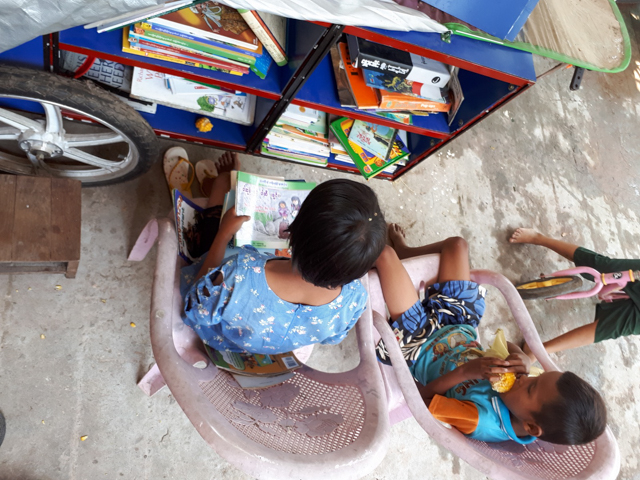
Your favorite memory of Myanmar?
The favorite memory that keeps coming to mind is about our community. We found the house we are currently leasing with the help of a friend who is also a community leader. Before moving in (we were moving from a place a few blocks away), people kept warning us what a bad neighborhood it is, and to beware. When we moved in, though, our friend assured us in all seriousness: “don’t worry: I know all the thieves here and I told them not to rob you.”
We weren’t really concerned about being robbed, but we were touched by his thoughtfulness. And to this day, his word has proved good. We’ve never been robbed, and we’ve felt so honored to become included in the community there. Myanmar hospitality has changed our lives forever. (People have thanked us for being outspoken about the coup, but honestly, we owe you all so many cups of tea—this is the least we can do! It’s just our chance to express our thanks for the hospitality we’ve been given.)
You are passionate about food. And Myanmar cusine is definitely underrated, what’s your favourite dish to eat and cook?
I don’t know if I could pick one favorite. But if I woke up in Myanmar tomorrow, the first place I would go is to the teashop at the end of my street. I would order naan bread with lentils, a plate of pickled tea leaf rice, and a cup of tea (bwa ja).
My favorite thing to make at home is egg curry.
I also love eating home cooked nga pay (fish cakes) and also cheh maung ywet (roselle cooked with bamboo shoots). Other family favorites are citron salad (shaw thee thoke), and pickled tea leaf salad (my three year old daughter will eat a whole plate of this by herself if left to her own devices).
To own the truth, some of my favorite Myanmar meals have been at highway bus stations—maybe getting off the bus enhances the experience? I don’t know, but the fact that these places aren’t closer to Yangon is very frustrating, actually!
You are an avid reader. Can you suggest us some books to get through this difficult time?
Hmm. I feel ill qualified to answer this question because I haven’t read any books since the coup. (I read 16 books in January, and then poof! On February 1, my reading life as I knew it ended.)
The first book that comes to mind is Ruth Reichl’s Garlic and Sapphires, where she talks about being an undercover food critic for the NYT. Given that Myanmar culture loves discussing food, I think a lot of folks might enjoy the read; it could be a nice distraction from our current existential woes. It’s a witty book with some fascinating insights into restaurant culture.
Two other quick recs:
The Magic Fish, by Trung Le Nguyen
(graphic novel about a teenager who is trying to come out to his mom)
One Long River of Song: Notes on Wonder for the Spirital and Non-Spirital Alike, by Brian Doyle (beatiful essay collection by a man who has lived through some hardships and loss)
How did Myanmar people change your life?
Myanmar has taught and/or confronted me in regard to so many things. Instead of writing a longform essay, how about a shortlist?
– the white supremacy I have inherited and still carry within myself
– that much of Western individualism is a myth centered on wealth
– the beauty and power of interdependant, communal living
– that it’s okay to just sit together with people without needing to speak
What do you miss the most right now, and what’s the first thing you will do when The Revolution will succeed?
The thing I miss most is my friends, and our neighborhood. I want to get back whenever it’s feasible. But I’m bracing myself for the possibility that it won’t be the same place I left, and that a lot of trauma has shaped the community in ways I may never fully comprehend as an outsider, and as someone who has never been in physical danger due to the coup.
First thing I’ll do when the revolution succeeds? Well, first I will tell my daughters, and next we will go and eat something special to celebrate. Lena, who is five, has been saying how she wants to celebrate our victory by throwing a nationwide cupcake party and outdoor movie night. So, maybe we’ll eat some victory cupcakes and start planning a party
Projects for the future?
We can’t wait to hire staff and get our small business off the ground as soon as we can. My husband and I have designed a process to make bamboo bottles with screw top lids. Prior to Covid we were about to ramp up production and hire staff. Our dream for the future is to create more jobs in Myanmar, and to be a part of creating sustainable alternatives to plastic. Mostly, we want to do everything we can to help support and rebuild Myanmar’s economy.
(Here’s a link to our Instagram page for those who are curious: https://www.instagram.com/wabu.myanmar/?hl=en)
Anything you would like to add? (A message to our friends?)
No regime lasts forever.
Can’t wait to celebrate your hard won victory as you bring this one to an end.
Getting to be a small part of the fight has been the biggest honor of my life. Thank you.
|||
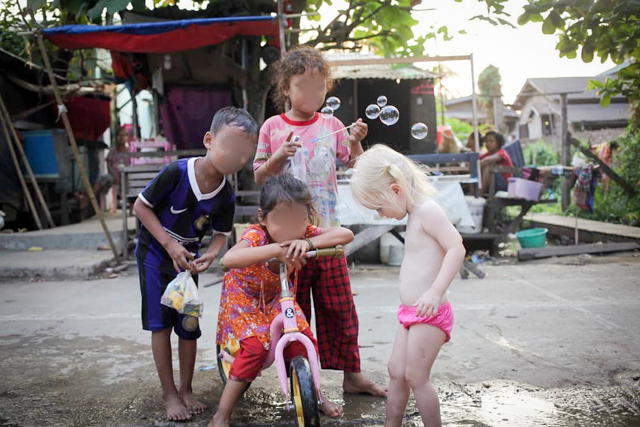
useful links:
– Breanna’s FB page: https://www.facebook.com/madimbout
– Breanna&Jim’s project on Instagram: https://www.instagram.com/wabu.myanmar/?hl=en
– Follow Breanna on Twitter: @randallbreanna
– Join the Revolution: www.speakupformyanmar.com

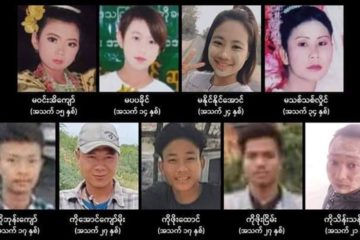
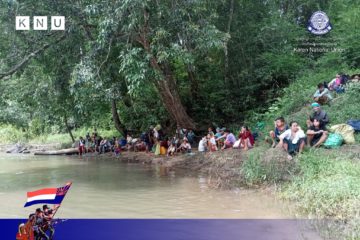
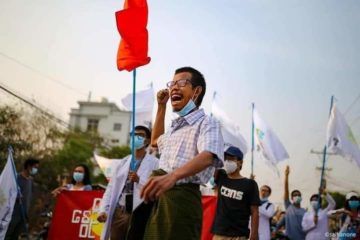
0 Comments